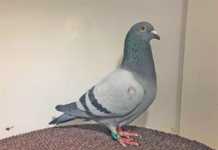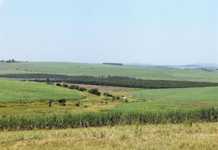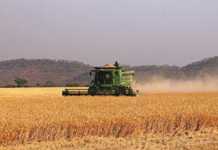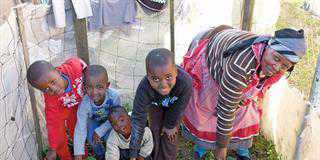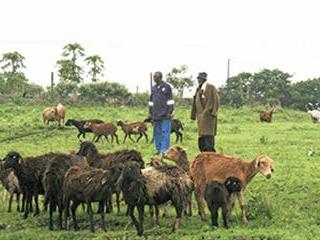
Kwa-Mthethwa village is one of the most impoverished communities n KwaZulu-Natal, and unemployment is rife. Determined to make a difference, Land Bank and the University of Zululand have combined to uplift this community through a project uniquely suited to this area: breeding indigenous sheep.
According to Land Bank project head Musa Mchunu, the programme has not only improved the lives of local farmers, but helped to increase the population of this valuable indigenous breed. It also enjoys considerable support from the community.
The project had its beginnings in 2006 when the University of Zululand began researching indigenous livestock. It was found that many farmers in the area were running indigenous Zulu sheep and goats, but their quality was generally poor due to cross-breeding with ‘modern’ breeds.
This meant they were costly to maintain, as they were not adapted to the area. The opposite is true of genuine Zulu sheep. One of the three Nguni sheep breeds (the others are the Swazi and Pedi sheep) brought southwards by Iron Age nomads, Zulu sheep have evolved to cope with the heat, humidity and parasites of the region. Being generally smaller-framed than ‘modern’ breeds and able to thrive under marginal conditions, they are also more practical for small-scale farmers.
“Zulu sheep don’t require as many veterinary or feed inputs as ‘modern’ sheep,” Musa explains. “They are a heritage breed of KwaZulu-Natal, and the University has been given a mandate to help conserve this breed and increase its population.”
Investment
To kickstart the project, Land Bank invested about R900 000. About R240 000 of this went to 60 young students in the form of bursaries while R202 000 was invested in another project on the development of indigenous flora and fauna. A total of R440 000 went into the actual sheep improvement research.

Beneficiaries Bafanyana, Molela and Fana Mbokazi – three brothers – say the project has helped them to increase profits and provide for their families. Each owns his own flock.
Ten farmers, mainly elderly people in the village who already farmed with the Zulu sheep, were selected to initiate the project in 2011 and were each given five indigenous sheep and a ram. “We also chose them based on their experience in sheep breeding,” Musa recalls. Today, any farmer is welcome to join the scheme as long as he or she does not cross-breed the Zulu sheep with other breeds.
Saving costs
Before the project started, farmers used methods such as spraying for ticks and other external parasites, a costly and unsustainable process. The University of Zululand therefore helped to construct animal-dipping facilities in the village. The cost of this – R91 000 – was funded by the bank, which also donated medication worth R11 000.
The dipping facilities have helped the beneficiaries directly and indirectly. In addition to using them for their own flocks, they are able to hire them out to other sheep owners from the village. This brings in extra cash as well as helping the entire community.
Economic benefits
This year, Land Bank invested another R100 000 in the project, using the money to buy additional sheep and cover operational costs. University of Zululand researcher Dr Nokuthula Kunene facilitated the purchase of the animals, which included 23 rams from the Nongoma and Msinga areas, where most pure-bred Zulu sheep are found. The sheep are kept at the university farm, where they are monitored for any diseases before being sent to the community.
The university also helps farmers to select animals for culling. The farmers retain complete control of the marketing process, however, and sell live animals, meat and hides. According to Musa, the project organisers hope to assist the farmers in the future to use their animals for embryo transplants and subsequent sale. “The project’s long-term goals are to turn the farmers into real commercial producers, promote the benefits of indigenous Zulu sheep, and conserve the breed,” says Musa.
Contact Dr Nokuthula Kunene on 082 569 3720.

